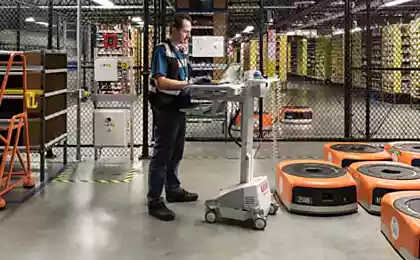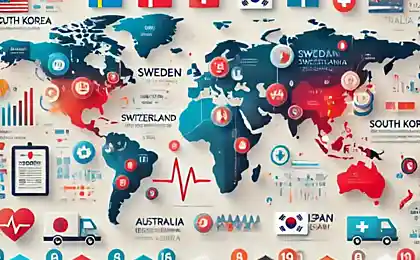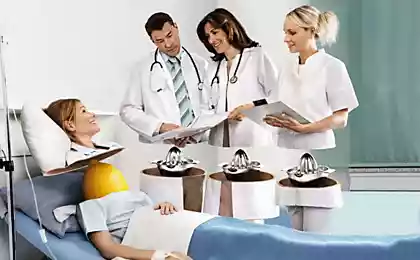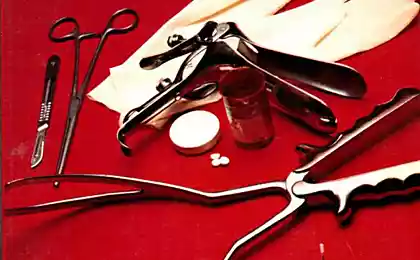557
10 jobs for physicians of the future
Two million six hundred eighty two thousand eight hundred sixteen
For many years people said, want a reliable job in the medical field. Over the years, this phrase takes on a different meaning. People are living longer, healthcare needs are growing. According to the UN, the number of people in the world aged 60 years and older is expected to double by 2050, from 841 million in 2013 to 2 billion. These 2 billion people will need the help of doctors, dentists, physiotherapists, pharmacists and surgeons.
But if being a dentist or physical therapist isn't your vocation, do not rush to quit. Jobs in the medical field will be much greater. Health care will include many new technologies, many of which are now in their infancy. Robot surgeon will perform the surgery for you. Robots-nurses will follow patients for you. There will be new profession. Before you ten jobs in the future of medicine to which you can start to prepare now.
Bioinformatic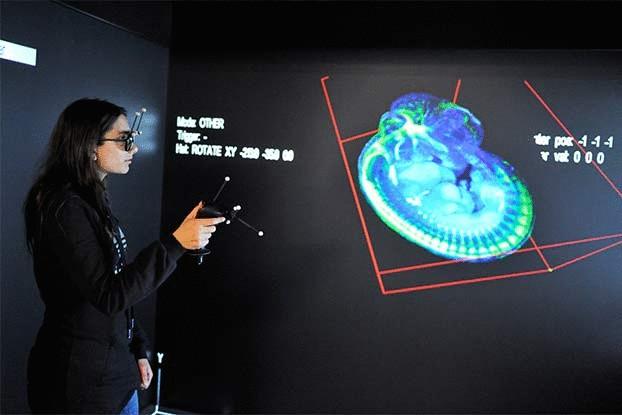
If you like science and statistics, bioinformatics could be a good field of work for you. Bioinformatics collect and analyze data from various biological fields, including population biology, genetics and pharmaceuticals. The analysis is carried out using mathematical models and dynamic simulation with bioinformatics that uses software and the Internet as basic tools. In practical terms, this means that bioinformatic can plan clinical trials of new drugs or to program a statistical model of population growth. Perhaps he will create three-dimensional models of DNA and protein sequences for analysis.
Bioinformatics (they biostatistic, biometric and computational biologists) already took place as professionals. The main success of analysis of such data was the analysis of the genome, the study of the human genome that began in 1990 and ended in 2003. Many believe that the number of such workers will grow in the future, as developing such as individual drug therapy. Pharmaceutical companies, incidentally, is one of the main engines of bioinformatics.
Specialist in cryopreservation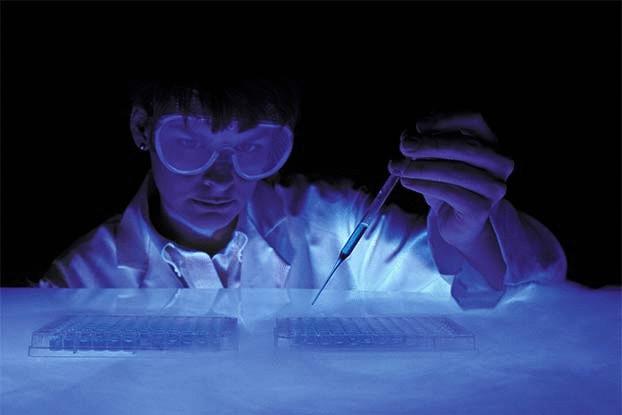
We know that some people freeze themselves after death (or your brain) in the hope that one day science will be able to cure that could kill them, and bring them back to life. Freeze even beloved Pets just in case. This is where need specialists in cryopreservation.
Cryopreservation is the art of freezing something for the future, for example, tissues or organs. Specialist in cryopreservation leads directly to the freezing process. The most common use of cryoservice — the freezing of embryos for in vitro fertilization, the freezing of sperm and eggs for those who have lost the ability to reproduce naturally.
Although scientists have not yet thought about how to bring life to the frozen people — don't think — there is hope that one day you can freeze and successfully transplant a complex tissue and organs. Organs for transplantation now have an expiration date in a day or two and can disappear if you do not find a recipient in time. Imagine if these bodies could save. On that scientists just work. Once they succeed, specialists in cryopreservation will be extremely popular.
Designer of implantable organs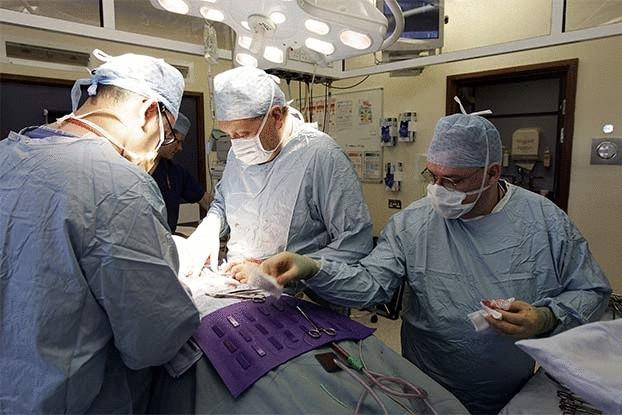
Writes HowStaffWorks, as of September, 123 175 Americans stood in line for a transplant; of these, 101 of 170 patients required a kidney transplant. But even if they get the kidney, not the fact that their troubles will end. 7% of recipients fail in the first year; 17% lose their new kidney within three years. For 10 years the success rate was 54%. The most common cause of kidney failure or other organ, that it begins to fight the immune system, taking a kidney for a foreign body.
Scientists hope that in the future will be available custom transplant organs will be created specifically for your body, possibly using your own cells. These cells (suspendiruemye in the gel) will be used as ink for the 3D printers that print organs. Such bodies will significantly reduce the waiting lists for transplantation, and resolve issues with rejection. Doctors are currently trying to grow a variety of organs, from the kidneys to the ears, to help people with problem or damaged organs. The intervertebral discs have already been successfully tested on rats and will soon experience the and people. Of course, with the development of this segment will be very important in the work of the designer of implantable organs.
Therapist end of life
As people live longer, they have more time to think about and plan for their last years or even decades. That's where you might need a therapist the end of life. Armed with experience in social work, palliative care, education, and human psychology, these professionals will work with older people, to prepare them for the final stage of life's journey. The discussion questions include such issues as to make the dying process smooth and painless how best to prepare yourself emotionally and deal with possible legal issues.
Therapists end of life can also work with client families to prepare them for the process. The experienced therapists will not only need education, but will be able to discuss sensitive and personal information with compassion and impartiality. Today, many things are already being discussed with older people, but most often this process is quite crumpled.
Genetic counselor
Genetic consultants will work with physicians and other health care providers to help patients understand inherited characteristics, genetic diseases and birth defects that affect them or their family. They will also be able to delicately discuss very intimate information. For example, if a genetic test shows that you have the gene for breast cancer, a genetic counselor can help answer the question of whether to do a mastectomy, like Angelina Jolie, or wait a couple of years and see what happens? What genes will determine the future of your child? To these and other questions will be answered by genetic counselors.
It should be noted that although genetic consultants already exist, the National society of genetic consultants was founded in 1979, is a relatively small number of people use their services, but in principle, genetic testing is in its infancy. But things are changing. There are more accurate and sophisticated tests, to develop new ones. Their numbers are growing, and with them will grow and the number of genetic counselors.
Professor in the field of health
This is an obvious question, but few people set them. If in the future there will be so many new jobs in the field of medicine and healthcare, who's going to train all these professionals? For example, professors in the field of healthcare. These people will teach doctors, nurses, physiotherapists, dentists, and specialists in cryopreservation and bioinformatics. Sometimes they will be practitioners, sometimes scientists or teachers. Because healthcare is changing rapidly, these professors must constantly be aware of the latest research and developments in their field. Also conduct their own research.
According to various estimates, the growth of professions in the field of professors, training of young specialists in new specialties that will be no less than 36.1 per cent from 2014 to 2024.
Navigator health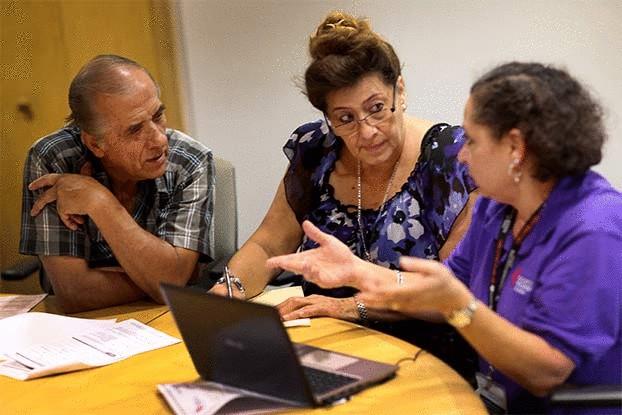
Sometimes it seems easier to be sick than nurse. If you are sick, the people who surround you care and attention. But if you are the spouse of the patient — you will be concerned that his or her treatment went smoothly and easily, to avoid confusion with the insurance or something. It's not easy, because hospitals and medical centers is a rather complex organization. And here may come to the place Navigator health.
Navigator health care safely and compassionately guide you through the complicated medical system, answer all the question from "who do I talk to about my wife not eating?" to "if we Need medical equipment, when is he coming home?". Nowadays, such devices are often former nurses, but in the future such people will have good preparation in the field of health and social services.
Medical Secretary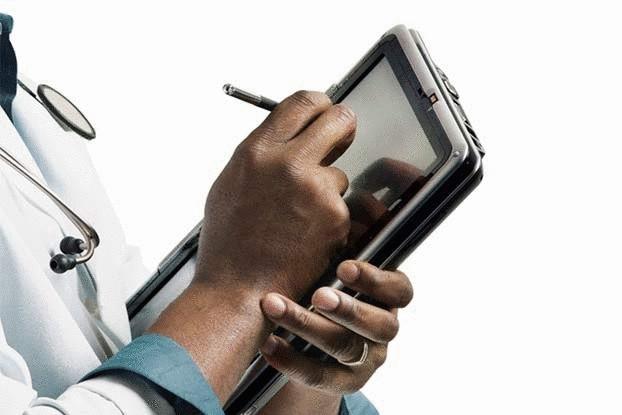
Electronic health record systems (EHR) is gaining momentum and appears to save time for physicians. No longer need to take notes during the visit and dictate the patient information afterwards. But in reality EHR require more time because doctors need to enter all the information (more detailed) in the computer system. Patients there is less time that never was good. Here medical Secretary, or rather its modified form.
Medical Secretary will follow the doctor and enter medical information in the EHR. They will make relevant information and prepare for upcoming meetings, answering questions and finding information. Because this position involves working closely with the medical field, some medical facilities in the US are already preparing medical students to that and introduce additional courses. In General computer skills is becoming increasingly preferred in hiring doctors to work.
Medical robotics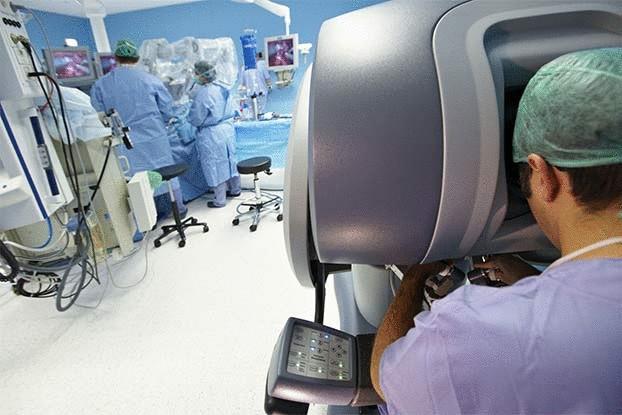
Meet HeartLander. It's a tiny robot that enters the patient's chest through a small incision below the sternum and moves through the patient's body in the area of the heart, which is prescribed by a doctor. HeartLander is controlled by the doctor, but a medical robotics expert. Such robotics are developing smart tools that are used by medical professionals, allowing you to do everything from operations to check the diagnosis.
In addition to these robots like HeartLander, there are also devices such as the DEKA Arm controlled by thought the prosthetic arm that performs various tasks involving fine motor skills, for example, may take an egg and not break it. In the queue of patents there are other, even more futuristic robots for healthcare like robotic companions for the elderly and persons with disabilities; nanorobots that can be swallowed to take pictures of the insides; the robots of neurosurgeons who will work directly on your skull.
Medical robotics will have to master the technical and computer science, as well as pass the relevant madbadvoodo. And the farther into the future — the more.
Taehyung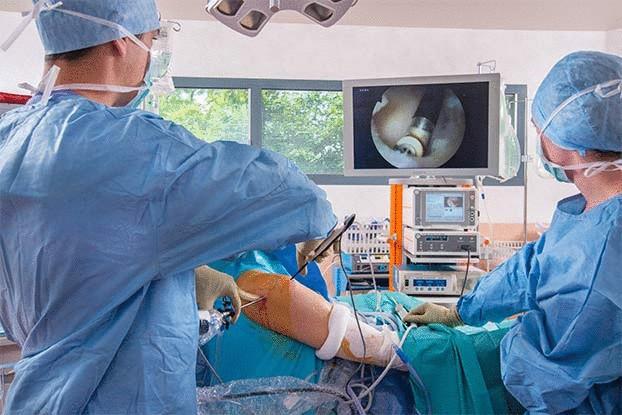
Telecharge are doctors that operate on their patients remotely. Unlike CT surgery, when the surgeons do the operation with the help of the computer and the patient lies a few metres from them, the patient telecharge may be in a different city or even country. The first fully remote operation — removal of the gallbladder patient from France to new York was implemented in 2001.
Although telekarelia state for 2014 is not yet widespread in the future, and of course there is a place. When such systems will become sophisticated and economically feasible, telecharge will be able to treat wounded soldiers on the battlefield or astronauts in space. Also telekarelia will be useful to people who live in rural areas or in developing countries where skilled surgeons are in short supply. Moreover, in the competition for the profession of telecharge will be able to participate surgeons worldwide, because the location will no longer matter.
Source: hi-news.ru
For many years people said, want a reliable job in the medical field. Over the years, this phrase takes on a different meaning. People are living longer, healthcare needs are growing. According to the UN, the number of people in the world aged 60 years and older is expected to double by 2050, from 841 million in 2013 to 2 billion. These 2 billion people will need the help of doctors, dentists, physiotherapists, pharmacists and surgeons.
But if being a dentist or physical therapist isn't your vocation, do not rush to quit. Jobs in the medical field will be much greater. Health care will include many new technologies, many of which are now in their infancy. Robot surgeon will perform the surgery for you. Robots-nurses will follow patients for you. There will be new profession. Before you ten jobs in the future of medicine to which you can start to prepare now.
Bioinformatic

If you like science and statistics, bioinformatics could be a good field of work for you. Bioinformatics collect and analyze data from various biological fields, including population biology, genetics and pharmaceuticals. The analysis is carried out using mathematical models and dynamic simulation with bioinformatics that uses software and the Internet as basic tools. In practical terms, this means that bioinformatic can plan clinical trials of new drugs or to program a statistical model of population growth. Perhaps he will create three-dimensional models of DNA and protein sequences for analysis.
Bioinformatics (they biostatistic, biometric and computational biologists) already took place as professionals. The main success of analysis of such data was the analysis of the genome, the study of the human genome that began in 1990 and ended in 2003. Many believe that the number of such workers will grow in the future, as developing such as individual drug therapy. Pharmaceutical companies, incidentally, is one of the main engines of bioinformatics.
Specialist in cryopreservation

We know that some people freeze themselves after death (or your brain) in the hope that one day science will be able to cure that could kill them, and bring them back to life. Freeze even beloved Pets just in case. This is where need specialists in cryopreservation.
Cryopreservation is the art of freezing something for the future, for example, tissues or organs. Specialist in cryopreservation leads directly to the freezing process. The most common use of cryoservice — the freezing of embryos for in vitro fertilization, the freezing of sperm and eggs for those who have lost the ability to reproduce naturally.
Although scientists have not yet thought about how to bring life to the frozen people — don't think — there is hope that one day you can freeze and successfully transplant a complex tissue and organs. Organs for transplantation now have an expiration date in a day or two and can disappear if you do not find a recipient in time. Imagine if these bodies could save. On that scientists just work. Once they succeed, specialists in cryopreservation will be extremely popular.
Designer of implantable organs

Writes HowStaffWorks, as of September, 123 175 Americans stood in line for a transplant; of these, 101 of 170 patients required a kidney transplant. But even if they get the kidney, not the fact that their troubles will end. 7% of recipients fail in the first year; 17% lose their new kidney within three years. For 10 years the success rate was 54%. The most common cause of kidney failure or other organ, that it begins to fight the immune system, taking a kidney for a foreign body.
Scientists hope that in the future will be available custom transplant organs will be created specifically for your body, possibly using your own cells. These cells (suspendiruemye in the gel) will be used as ink for the 3D printers that print organs. Such bodies will significantly reduce the waiting lists for transplantation, and resolve issues with rejection. Doctors are currently trying to grow a variety of organs, from the kidneys to the ears, to help people with problem or damaged organs. The intervertebral discs have already been successfully tested on rats and will soon experience the and people. Of course, with the development of this segment will be very important in the work of the designer of implantable organs.
Therapist end of life

As people live longer, they have more time to think about and plan for their last years or even decades. That's where you might need a therapist the end of life. Armed with experience in social work, palliative care, education, and human psychology, these professionals will work with older people, to prepare them for the final stage of life's journey. The discussion questions include such issues as to make the dying process smooth and painless how best to prepare yourself emotionally and deal with possible legal issues.
Therapists end of life can also work with client families to prepare them for the process. The experienced therapists will not only need education, but will be able to discuss sensitive and personal information with compassion and impartiality. Today, many things are already being discussed with older people, but most often this process is quite crumpled.
Genetic counselor

Genetic consultants will work with physicians and other health care providers to help patients understand inherited characteristics, genetic diseases and birth defects that affect them or their family. They will also be able to delicately discuss very intimate information. For example, if a genetic test shows that you have the gene for breast cancer, a genetic counselor can help answer the question of whether to do a mastectomy, like Angelina Jolie, or wait a couple of years and see what happens? What genes will determine the future of your child? To these and other questions will be answered by genetic counselors.
It should be noted that although genetic consultants already exist, the National society of genetic consultants was founded in 1979, is a relatively small number of people use their services, but in principle, genetic testing is in its infancy. But things are changing. There are more accurate and sophisticated tests, to develop new ones. Their numbers are growing, and with them will grow and the number of genetic counselors.
Professor in the field of health

This is an obvious question, but few people set them. If in the future there will be so many new jobs in the field of medicine and healthcare, who's going to train all these professionals? For example, professors in the field of healthcare. These people will teach doctors, nurses, physiotherapists, dentists, and specialists in cryopreservation and bioinformatics. Sometimes they will be practitioners, sometimes scientists or teachers. Because healthcare is changing rapidly, these professors must constantly be aware of the latest research and developments in their field. Also conduct their own research.
According to various estimates, the growth of professions in the field of professors, training of young specialists in new specialties that will be no less than 36.1 per cent from 2014 to 2024.
Navigator health

Sometimes it seems easier to be sick than nurse. If you are sick, the people who surround you care and attention. But if you are the spouse of the patient — you will be concerned that his or her treatment went smoothly and easily, to avoid confusion with the insurance or something. It's not easy, because hospitals and medical centers is a rather complex organization. And here may come to the place Navigator health.
Navigator health care safely and compassionately guide you through the complicated medical system, answer all the question from "who do I talk to about my wife not eating?" to "if we Need medical equipment, when is he coming home?". Nowadays, such devices are often former nurses, but in the future such people will have good preparation in the field of health and social services.
Medical Secretary

Electronic health record systems (EHR) is gaining momentum and appears to save time for physicians. No longer need to take notes during the visit and dictate the patient information afterwards. But in reality EHR require more time because doctors need to enter all the information (more detailed) in the computer system. Patients there is less time that never was good. Here medical Secretary, or rather its modified form.
Medical Secretary will follow the doctor and enter medical information in the EHR. They will make relevant information and prepare for upcoming meetings, answering questions and finding information. Because this position involves working closely with the medical field, some medical facilities in the US are already preparing medical students to that and introduce additional courses. In General computer skills is becoming increasingly preferred in hiring doctors to work.
Medical robotics

Meet HeartLander. It's a tiny robot that enters the patient's chest through a small incision below the sternum and moves through the patient's body in the area of the heart, which is prescribed by a doctor. HeartLander is controlled by the doctor, but a medical robotics expert. Such robotics are developing smart tools that are used by medical professionals, allowing you to do everything from operations to check the diagnosis.
In addition to these robots like HeartLander, there are also devices such as the DEKA Arm controlled by thought the prosthetic arm that performs various tasks involving fine motor skills, for example, may take an egg and not break it. In the queue of patents there are other, even more futuristic robots for healthcare like robotic companions for the elderly and persons with disabilities; nanorobots that can be swallowed to take pictures of the insides; the robots of neurosurgeons who will work directly on your skull.
Medical robotics will have to master the technical and computer science, as well as pass the relevant madbadvoodo. And the farther into the future — the more.
Taehyung

Telecharge are doctors that operate on their patients remotely. Unlike CT surgery, when the surgeons do the operation with the help of the computer and the patient lies a few metres from them, the patient telecharge may be in a different city or even country. The first fully remote operation — removal of the gallbladder patient from France to new York was implemented in 2001.
Although telekarelia state for 2014 is not yet widespread in the future, and of course there is a place. When such systems will become sophisticated and economically feasible, telecharge will be able to treat wounded soldiers on the battlefield or astronauts in space. Also telekarelia will be useful to people who live in rural areas or in developing countries where skilled surgeons are in short supply. Moreover, in the competition for the profession of telecharge will be able to participate surgeons worldwide, because the location will no longer matter.
Source: hi-news.ru
Mask of gelatin for perfectly smooth skin
The earth has experienced the loss of atmosphere at least twice




